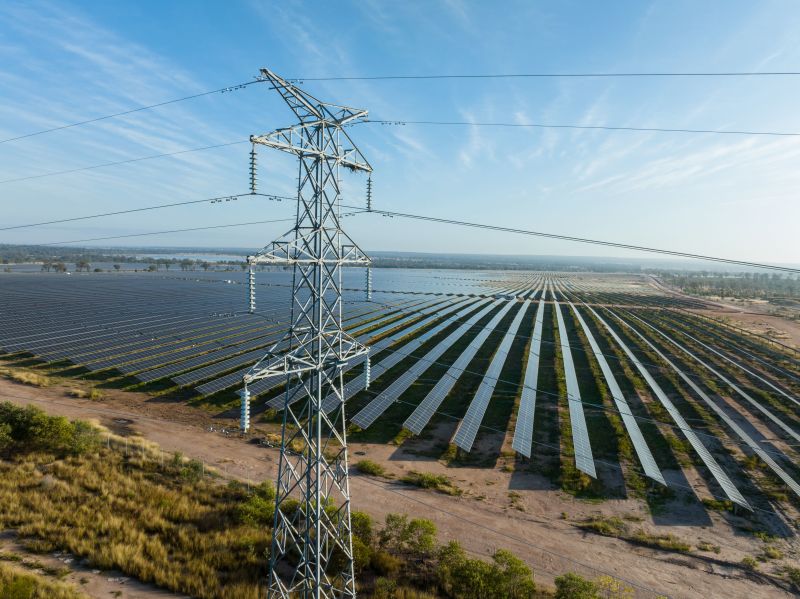The Queensland government has moved to enshrine key commitments from the state’s ambitious Energy and Jobs Plan into law, introducing a bill to legislate renewable energy targets, maintain public ownership of energy assets, and guarantee the financial security of workers.
Queensland Energy Minister Mick de Brenni said the Energy (Renewable Transformation and Jobs) Bill 2023, introduced to state parliament on Tuesday, will legislate the government’s commitments to 50% of the state’s energy being renewable by 2030, 70% by 2032 and 80% by 2035.
The government also intends to secure 54% majority public ownership for generation assets, and full ownership of transmission and “deep storage” assets.
The bill will also establish the Job Security Guarantee Fund to provide workers at existing publicly owned power stations access to new jobs, training or financial assistance.
“These laws are about our real commitment to a publicly owned energy system, one that protects tens of thousands of jobs in existing industries already vulnerable to carbon emissions,” de Brenni said.
“Nowhere else in the world has a government offered a job security guarantee in law, to ensure Queenslanders working in publicly owned coal-fired power stations are given peace of mind, and financial security as we deliver our transition to clean energy.”
De Brenni said the bill is the next foundational step in implementing the Energy and Jobs Plan that calls for an additional 22 GW of new wind and solar projects by 2035, supported by grid-scale batteries and pumped hydro storage.
The state government has committed $19 billion in capital investment over the next four years to support new wind, solar, storage and transmission.
“We’ve already made significant progress under the plan, with new generation and storage … but we must enshrine the QEJP into law to lock in an orderly transition,” de Brenni said.
The tabling of the bill was welcomed by the Queensland Conservation Council (QCC), with Director Dave Copeman calling on the state opposition to endorse the laws.
“Every new solar and wind project that connects to the grid is bringing down power bills, reducing the state’s emissions and creating regional jobs. That’s a win-win-win for our hip-pocket, environment and economy,” he said.
“We need the state opposition to back this legislation to demonstrate they are committed to ending the climate and energy wars, and getting on with the transition to clean, renewable energy.”
This content is protected by copyright and may not be reused. If you want to cooperate with us and would like to reuse some of our content, please contact: editors@pv-magazine.com.









2 comments
By submitting this form you agree to pv magazine using your data for the purposes of publishing your comment.
Your personal data will only be disclosed or otherwise transmitted to third parties for the purposes of spam filtering or if this is necessary for technical maintenance of the website. Any other transfer to third parties will not take place unless this is justified on the basis of applicable data protection regulations or if pv magazine is legally obliged to do so.
You may revoke this consent at any time with effect for the future, in which case your personal data will be deleted immediately. Otherwise, your data will be deleted if pv magazine has processed your request or the purpose of data storage is fulfilled.
Further information on data privacy can be found in our Data Protection Policy.